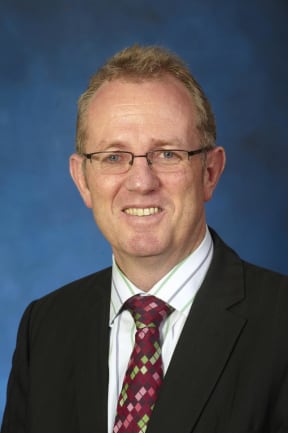The Police Association believes an independent report shows police weren't trying to hide anything in the early stages of the investigation into the so-called Roastbusters group.

Police association president Greg O'Connor. Photo: NZ Police Association
Police are still investigating the young men who boasted online about having sex with drunk teenage girls in Auckland, some of them underage. The Independent Police Conduct Authority (IPCA) on Thursday criticised the force for initially saying there had been no complaints, when there had been.
Police Association President Greg O'Connor said he was pleased the report did not find fault with one specific officer.
"It is clear that this was communications stuff-up, not a conspiracy, as was first reported. Clearly there has a been a breakdown in communication, however it is something of a sideshow to the real issue which will be a report on how well police have investigated the Roastbusters in the first place."
But a well-known campaigner against sexual violence has told Morning Report the police should have been told to sort out the way they handle media queries after their handling of the case.
Louise Nicholas, the woman whose rape complaint led to sweeping changes in police culture, said the IPCA should should have told the police to review its processes.
"It was an absolute stuff-up internally at that police station, and I'm really disappointed that the IPCA have not come in recommending that the police have a look at that particular process" she said.
Release of IPCA report
On Thursday, Assistant Police Commissioner Malcolm Burgess said police accepted the IPCA's findings that they mishandled media queries, but he described it as "an honest mistake".
Police originally said they had not been able to investigate the Roastbusters group because no one had made a formal complaint. A few days later, in November last year, it emerged that four girls had come forward and one had given an evidential video interview.
The IPCA found there was a systemic communication breakdown. One detective knew that a complaint had been laid, but failed to clearly convey that to colleagues answering media questions.
IPCA chair Judge Sir David Carruthers said police did not deliberately mislead the media and no individual officer can be criticised, but the mistakes undermined public trust and confidence in the police.
Watch Assistant Police Commissioner Malcolm Burgess address the media
At the news conference in Wellington on Thursday, Assistant Commissioner Malcolm Burgess said police accepted the findings and hoped this did not happen again.
"The IPCA said that this was essentially an honest mistake - and we agree. The person involved is well aware of the mistake they've made and they've learned from that."
Mr Burgess said no action would be taken against any officer, but admitted that regrettable mistakes had been made.
The police investigation into the teenage boys, called Operation Clover, is being prepared for legal review. Assistant Commissioner Burgess said if there was any initial damage to that investigation, it has been repaired. He said police have been in touch with a large number of young women during the inquiry and have satisfied their concerns about the investigation.

